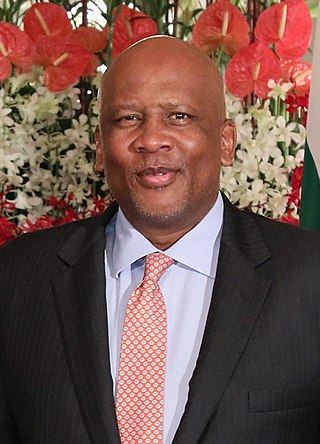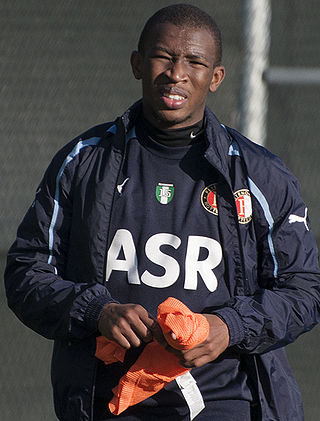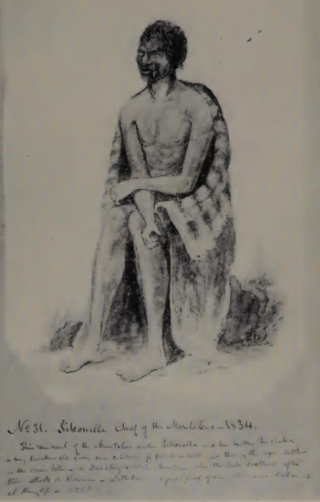
Lesotho, formally the Kingdom of Lesotho, is a landlocked country in Southern Africa. As an enclave of South Africa, with which it shares a 1,106 km (687 mi) border, it is the only sovereign enclave in the world outside of the Italian Peninsula. It is situated in the Maloti Mountains and contains the highest peak in Southern Africa. It has an area of over 30,000 km2 (11,600 sq mi) and has a population of about two million. It is the largest enclaved country in the world. Its capital and largest city is Maseru. The country is also known by the nickname The Mountain Kingdom.

Lesotho's geographic location makes it extremely vulnerable to political and economic developments in South Africa. Its capital is the small city of Maseru. It is a member of many regional economic organizations including the Southern African Development Community (SADC) and the Southern African Customs Union (SACU). Lesotho also is active in the United Nations, the Organisation of African Unity, now the African Union, the Non-Aligned Movement, and many other international organizations. In addition to the Republic of Korea, the United States, South Africa, Ireland, People's Republic of China, Libya, and the European Union all currently retain resident diplomatic missions in Lesotho. Foreign relations of Lesotho are administered by the Ministry of Foreign Affairs and International Relations.
Specific replant disease is a malady that manifests itself when susceptible plants such as apples, pears, plums, cherries and roses are placed into soil previously occupied by a related species. The exact causes are not known, but in the first year the new plants will grow poorly. Root systems are weak and may become blackened, and plants may fail to establish properly.

A unitary state is a state or sovereign state governed as a single entity in which the central government is the supreme authority. The central government may create or abolish administrative divisions. Such units exercise only the powers that the central government chooses to delegate. Although political power may be delegated through devolution to regional or local governments by statute, the central government may override the decisions of devolved governments, curtail their powers, or expand their powers. The modern unitary state concept originated in France; in the aftermath of the Hundred Years' War, national feelings that emerged from the war unified France. The war accelerated the process of transforming France from a feudal monarchy to a unitary state. The French then later spread unitary states by conquests, throughout Europe during and after the Napoleonic Wars, and to the world through the vast French colonial empire.
The term Batlôkwa refers to several Kgatla communities that reside in Lesotho and South Africa.

Letsie III is King of Lesotho. He succeeded his father, Bereng Seeiso Moshoeshoe II, who was forced into exile in 1990. His father was briefly restored in 1995 but died in a car crash in early 1996, and Letsie became king again. As a constitutional monarch, most of King Letsie's duties as monarch of Lesotho are ceremonial. In 2000, he declared HIV/AIDS in Lesotho to be a natural disaster, prompting immediate national and international response to the epidemic.

The Sotho, also known as the Basotho, are a Sotho-Tswana ethnic group native to Southern Africa. They primarily inhabit the regions of Lesotho and South Africa.

The flag of Haiti is the national flag of the Republic of Haiti. It is a bicolour flag featuring two horizontal bands coloured blue and red, emblazoned by a white rectangular panel bearing the coat of arms of Haiti. The coat of arms depicts a trophy of weapons atop a green hill and a royal palm symbolizing independence. The palm is topped by the Cap of Liberty. The motto L'Union fait la Force appears on a white ribbon below the arrangement.

Cider apples are a group of apple cultivars grown for their use in the production of cider. Cider apples are distinguished from "cookers" and "eaters", or dessert apples, by their bitterness or dryness of flavour, qualities which make the fruit unpalatable but can be useful in cidermaking. Some apples are considered to occupy more than one category.
The Lesotho national football team, also known as LNFT, represents Lesotho in men's international association football and is governed by the Lesotho Football Association.
Ladybrand is a small agricultural town in the Free State province of South Africa, situated 18 km from Maseru, the capital of Lesotho. Ladybrand is one of five towns that forms the Mantsopa Local Municipality. Founded in 1867 following the Basotho Wars, it was named after Lady (Catharina) Brand, the wife of the president of the Orange Free State, Johannes Brand.
A rootstock is part of a plant, often an underground part, from which new above-ground growth can be produced. It could also be described as a stem with a well developed root system, to which a bud from another plant is grafted. It can refer to a rhizome or underground stem. In grafting, it refers to a plant, sometimes just a stump, which already has an established, healthy root system, onto which a cutting or a bud from another plant is grafted. In some cases, such as vines of grapes and other berries, cuttings may be used for rootstocks, the roots being established in nursery conditions before planting them out. The plant part grafted onto the rootstock is usually called the scion. The scion is the plant that has the properties that propagator desires above ground, including the photosynthetic activity and the fruit or decorative properties. The rootstock is selected for its interaction with the soil, providing the roots and the stem to support the new plant, obtaining the necessary soil water and minerals, and resisting the relevant pests and diseases. After a few weeks, the tissues of the two parts will have grown together, eventually forming a single plant. After some years, it may be difficult to detect the site of the graft although the product always contains the components of two genetically different plants.
Maisa-Phoka is a community council located in the Leribe District of Lesotho. Its population in 2006 was 12,630.
Marung is a community council located in the Mokhotlong District of Lesotho. Its population in 2006 was 5,458.

Kamohelo Mokotjo is a South African professional soccer player who plays as a defensive midfielder for Cape Town City.

The Lesotho women's national football team, also known affectionately as Mehalalitoe, represents Lesotho in international women's football. Governed by the Lesotho Football Association (LFA), the team has demonstrated steady progress in recent years, particularly within the regional Council of Southern Africa Football Associations (COSAFA) competitions.

Envy is a trademarked brand of the Scilate apple variety. Scilate is the result of a cross between Royal Gala and Braeburn. It was developed in New Zealand by HortResearch, submitted for a patent in 2008 and patented in 2009. Field tests were done in the countries of New Zealand, the United Kingdom, France, and the US. Some trialing was done in Italy with organic cultivation.

Lesotho sent a delegation to compete at the 2016 Summer Paralympics in Rio de Janeiro, Brazil, from 7 to 18 September 2016. This was the fifth time the country competed in the Summer Paralympic Games after it made its debut sixteen years prior at the 2000 Sydney Paralympics. The delegation to Rio de Janeiro consisted of two athletes: sprinter Sello Mothebe and discus thrower Litsitso Khotele. Mothebe originally came third in the heats of the men's 200 metres T12 and the men's 400 metres T12 events but he was retroactively disqualified for testing positive for a banned substance. Khotele ranked tenth in the women's discus throw F43–44 competition with a throw of 19.91 metres.

Kgosi Sekonyela was a chief of the Batlokwa people. He effectively took over the chieftainship from his mother queen Manthatisi in 1824 settling in Jwalaboholo in modern day northern Lesotho. He regularly engaged in cattle raids on neighbouring tribes, often to the detriment of his own people. In late 1853, Sekonyela's Tlôkwa Chiefdom was defeated by the army of Basotho king Moshoeshoe I. Most of his tribesmen were subsequently dispersed or absorbed by the victors. Sekonyela moved to Herschel where he died three years later.
Major is a cider apple cultivar first grown in the United Kingdom in the area of Devon and Somerset.









